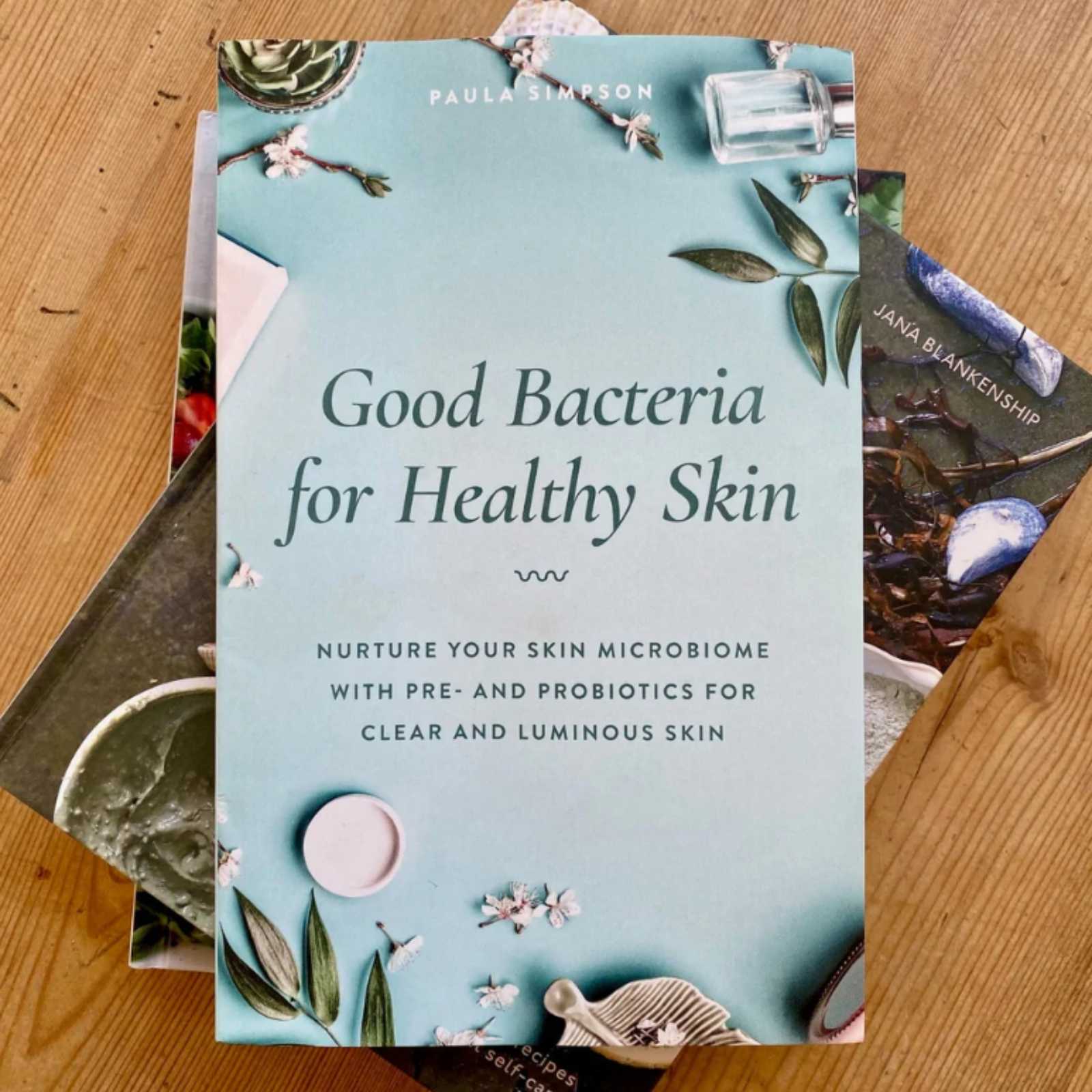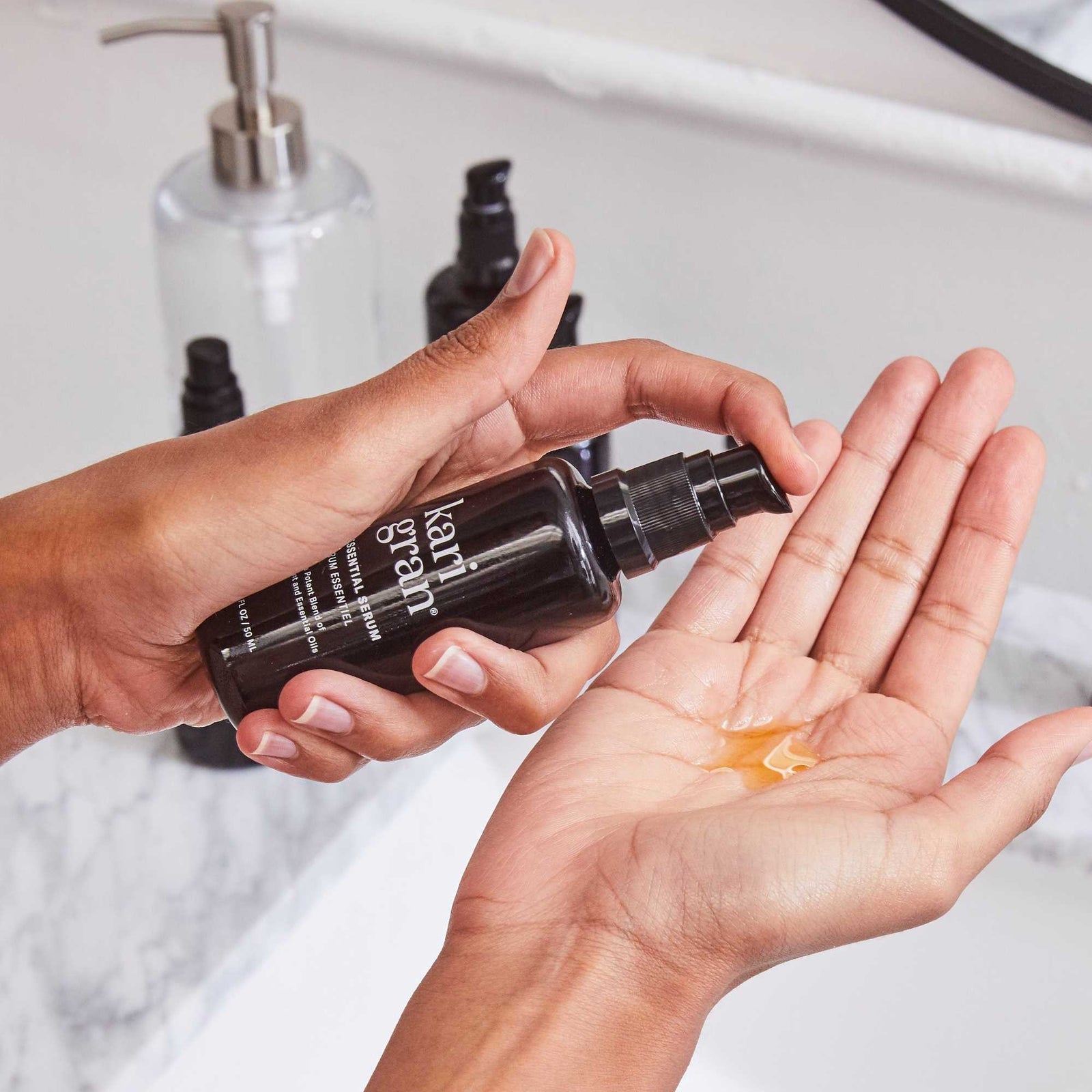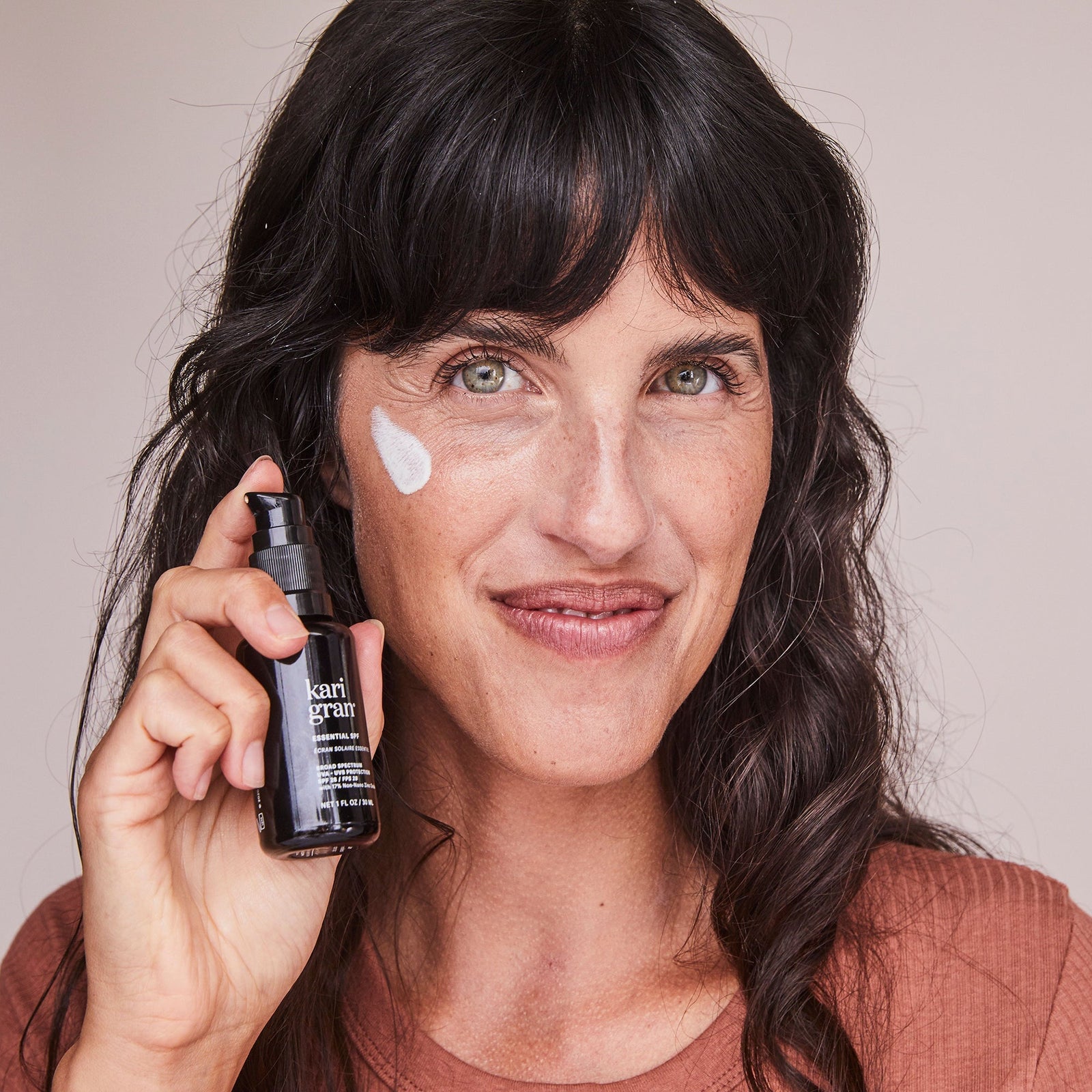Inside Your Microbiome Part 1

One of the things I love about going to beauty conventions and workshops is meeting all the smart, talented, like-minded women. Read on for my chat with Paula Simpson, Beauty Nutritionist & Author of "Good Bacteria for Healthy Skin; Nurturing Your Skin Microbiome for Clear & Luminous Skin"
KARI: Paula, I remember so clearly when we first met in NYC. It was Friday the 13th, and that morning I was giving my very first my presentation of our Green Beauty Barometer to a ballroom full of industry professionals. I was terrified! I couldn't eat a thing for breakfast, so I shoved my handful of supplements into my pocket to take with lunch. You were so sweet and introduced yourself to me. You'd already received an advance copy of the GBB, and I recall asking, "do I really need all of these?" flashing you my palmful of pills. At that time, nutraceuticals were really new to the beauty market, but I knew you know your stuff.
PAULA: Wow, that feels like yesterday, doesn't it? I remember that day clearly and felt an immediate connection when we met, Kari! Yes, I remember you had a handful of supplements that you showed me in between our presentations.
KARI: Fast forward to today and the launch of your very cool book Good Bacteria for Healthy Skin. I'm delighted to have the opportunity to feature it on our blog and ask all my burning questions.
PAULA: Thanks for having me! I'm also a big fan of your Green Beauty Barometer, skincare line, and everything you do to bring awareness to non-toxic skin health and beauty.
KARI: So, let me start by asking—why do you think it seems like everyone is talking about the skin's microbiome these days? Can you give us a 101 on what the microbiome is and does?
PAULA: Research on the human microbiome has exploded in the last 10 years. With the discoveries made on how microbes affect our health, the skin microbiome has also become an area of interest. We know that skin harbors a diverse ecosystem of microorganisms that protect the body from harmful pathogens and environmental stressors as well as keep the skin healthy and resilient. A diverse skin microbiome is now considered to be a key component in keeping your skin healthy. These bacterial communities not only support skin immunity, but several clinical studies have shown that a shift in skin microbiota is associated with various conditions including accelerated skin aging, sensitive skin, acne, psoriasis, and atopic dermatitis.
KARI: What's the telltale sign your microbiome isn't as happy as it could be?
PAULA: Reactive, irritated, and chronic skin conditions have all been connected to the skin microbiome. When skin microflora is balanced and thriving, this is known as a state of "symbiosis." But a state of "dysbiosis" means the skin's ecosystem and normally present microbes are out of balance or impaired by pathogens that affect the normal function and activity of skin microflora. After some intense research for my book, I do discuss different skin conditions associated with the microbiome, their offending pathogens, and how to rebalance the skin with targeted bacteria through food, supplementation, and skincare.
KARI: Thanks so much for explaining that to me, Paula! I'll come back to you for a Part 2 chat with more questions about diet and the age-old question: "what's the difference between prebiotics and probiotics?"
Tell us in the comments if you have any questions about the microbiome! We can get Paula to answer and report back in Inside your Microbiome Part 2 .
2 Responses
Carrie
What affect do products like AHA/BHA acids, retinols and vitamin c serums have on our microbiome? Are these products good for our skin or do they just provide short-term improvements in the appearance of our skin?
Leave a comment
Comments will be approved before showing up.




Marcie Sleath
December 12, 2019
I am also interested in the answer to Carrie’s question: What affect do products like AHA/BHA acids, retinols and vitamin c serums have on our microbiome? Are these products good for our skin or do they just provide short-term improvements in the appearance of our skin?